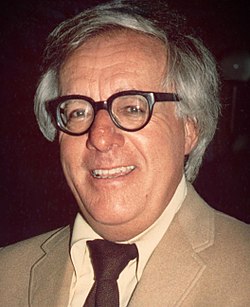Ray Bradbury Quote
Simplicity itself. Skin, debone, demarrow, scarify, melt, render down and destroy. Every adjective that counted, every verb that moved, every metaphor that weighed more than a mosquito--out! Every simile that would have made sub-moron's mouth twitch--gone! Any aside that explained the two-bit philosophy of a first-rate writer--lost!Every story slenderized, starved, bluepenciled, leeched and bled white, resembled every other story. Twain read like Poe read Shakespeare read like Dostoevsky read like--in the finale--Edgar Guest. Every word of more than three syllables had been razored. Every image that demanded so much as one instant's attention--shot dead.
Simplicity itself. Skin, debone, demarrow, scarify, melt, render down and destroy. Every adjective that counted, every verb that moved, every metaphor that weighed more than a mosquito--out! Every simile that would have made sub-moron's mouth twitch--gone! Any aside that explained the two-bit philosophy of a first-rate writer--lost!Every story slenderized, starved, bluepenciled, leeched and bled white, resembled every other story. Twain read like Poe read Shakespeare read like Dostoevsky read like--in the finale--Edgar Guest. Every word of more than three syllables had been razored. Every image that demanded so much as one instant's attention--shot dead.
Related Quotes
About Ray Bradbury
Bradbury is best known for his novel Fahrenheit 451 (1953) and his short-story collections The Martian Chronicles (1950), The Illustrated Man (1951), and The October Country (1955). Other notable works include the coming of age novel Dandelion Wine (1957), the dark fantasy Something Wicked This Way Comes (1962) and the fictionalized memoir Green Shadows, White Whale (1992). He also wrote and consulted on screenplays and television scripts, including Moby Dick and It Came from Outer Space. Many of his works were adapted into television and film productions as well as comic books. Bradbury also wrote poetry which has been published in several collections, such as They Have Not Seen the Stars (2001).
The New York Times called Bradbury "An author whose fanciful imagination, poetic prose, and mature understanding of human character have won him an international reputation" and "the writer most responsible for bringing modern science fiction into the literary mainstream".
